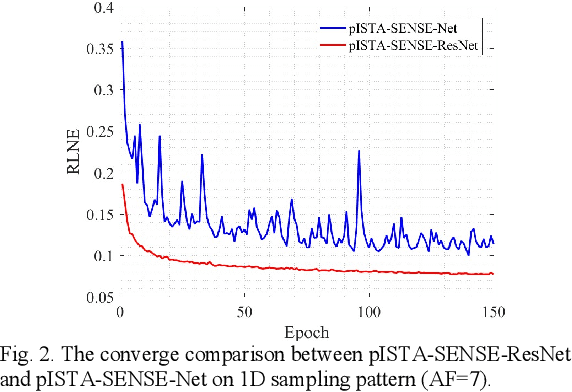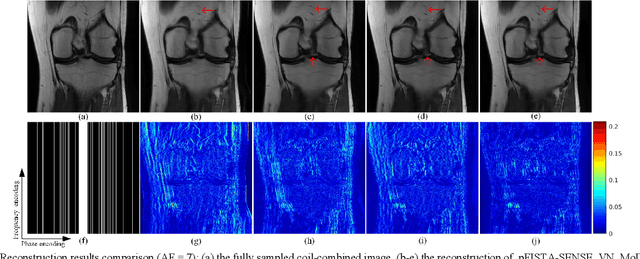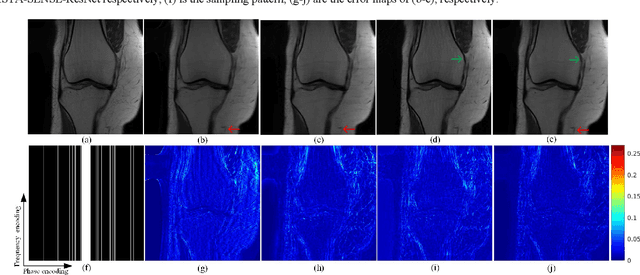Yonggui Yang
pISTA-SENSE-ResNet for Parallel MRI Reconstruction
Sep 24, 2019



Abstract:Magnetic resonance imaging has been widely applied in clinical diagnosis, however, is limited by its long data acquisition time. Although imaging can be accelerated by sparse sampling and parallel imaging, achieving promising reconstruction images with a fast reconstruction speed remains a challenge. Recently, deep learning approaches have attracted a lot of attention for its encouraging reconstruction results but without a proper interpretability. In this letter, to enable high-quality image reconstruction for the parallel magnetic resonance imaging, we design the network structure from the perspective of sparse iterative reconstruction and enhance it with the residual structure. The experimental results of a public knee dataset show that compared with the optimization-based method and the latest deep learning parallel imaging methods, the proposed network has less error in reconstruction and is more stable under different acceleration factors.
 Add to Chrome
Add to Chrome Add to Firefox
Add to Firefox Add to Edge
Add to Edge